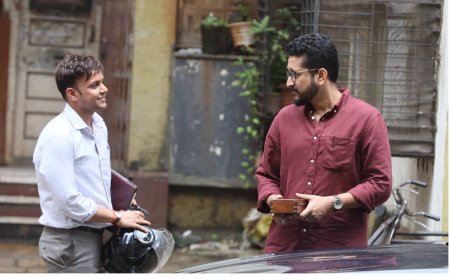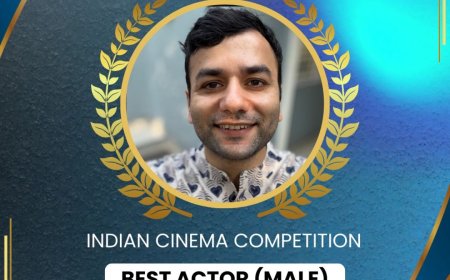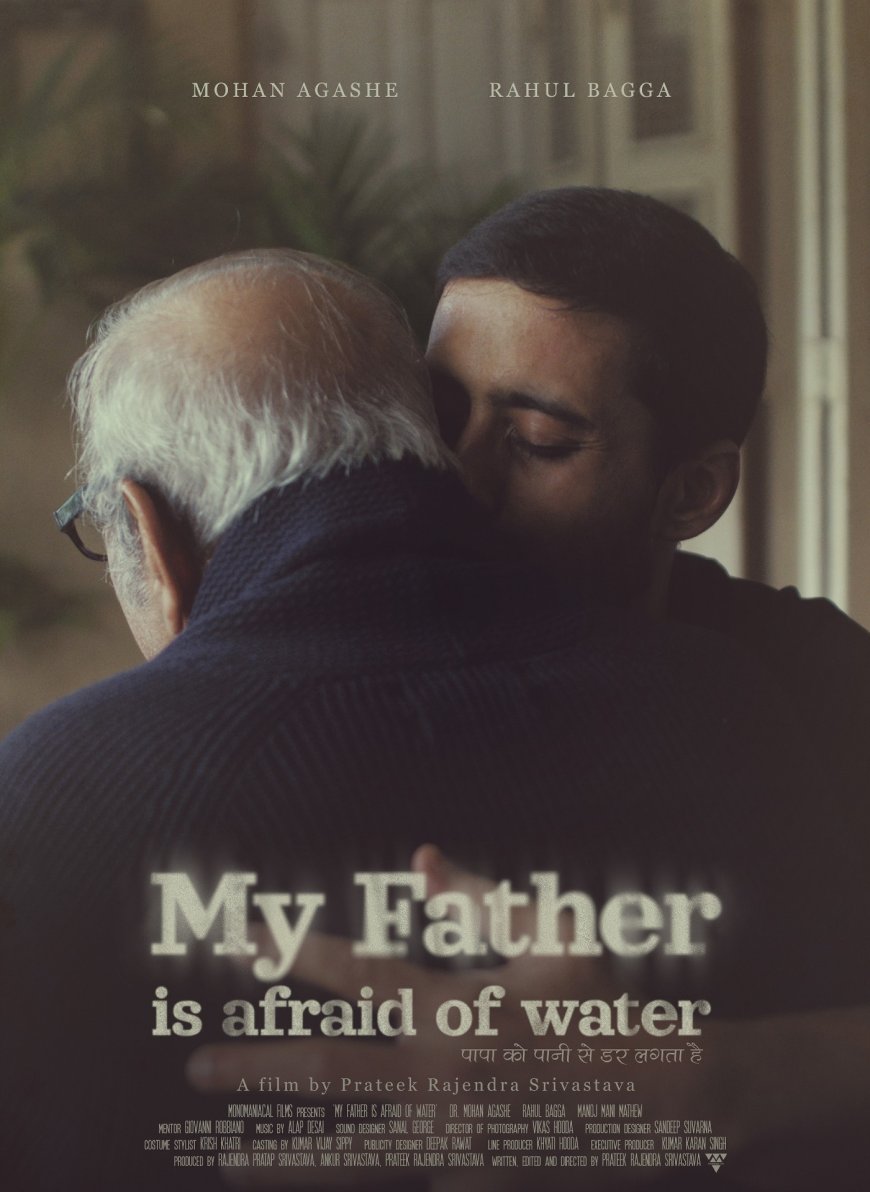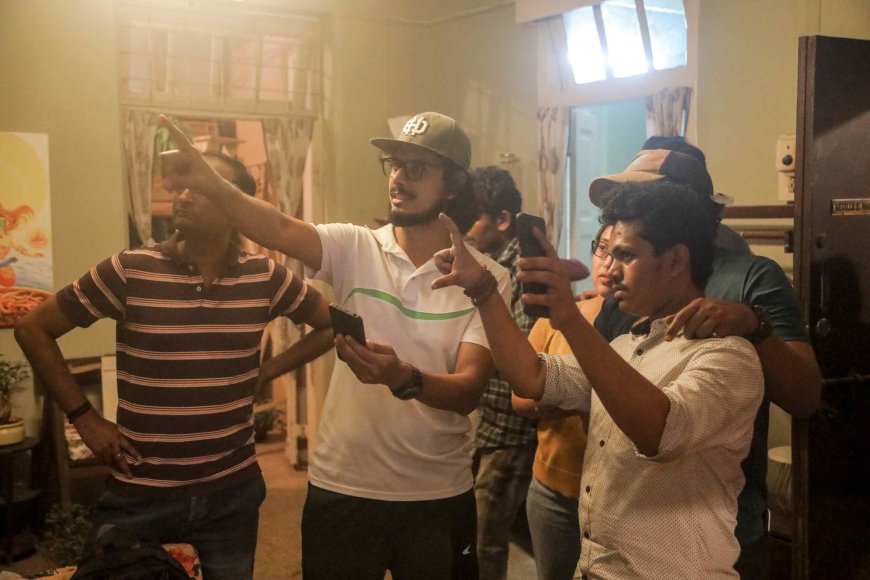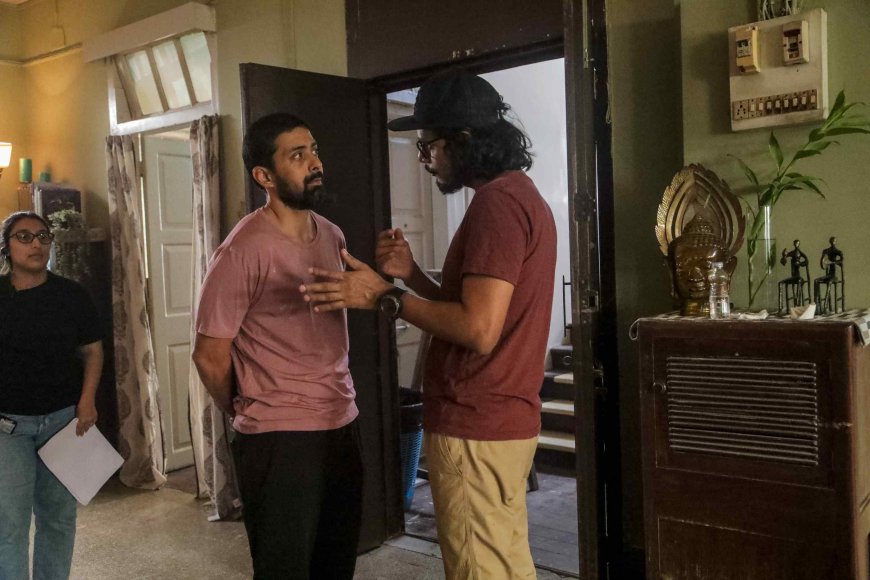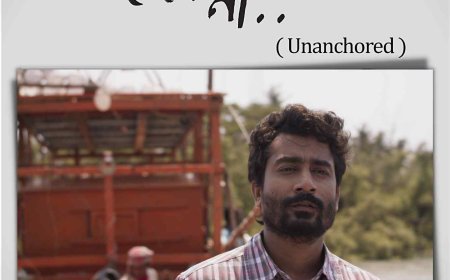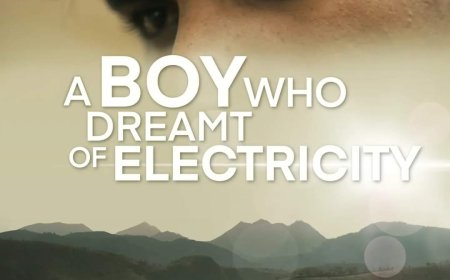“MY FATHER IS AFRAID OF WATER”: A short film on Alzheimer patients and their Adult Children
Dr. Shoma A. Chatterjee provides an interview-based review of a short film called MY FATHER IS AFRAID OF WATER inspired by his own relationship with his father suffering from a severe case of ALZHEIMERS
According to the debutant director of the film My Father is Afraid of Water, Prateek Rajendra Srivastava, a FTII alumni, “I had read that there are over 50 million people worldwide living with Alzheimer's or related dementia. Their children, whether caregivers or not, are likely to be feeling helpless, alone, frustrated, and burnt out, much like I did in the face of no cure for Alzheimer's. However, I want to remind them all that they are not alone and that in a world where a cure for Alzheimer's remains elusive, our selfless love, care, and unwavering devotion have the potential to be potent remedies.”
My Father is Afraid of Water is a 27-minute film taking a close look at a father-son relationship spread across one morning. It is about an old man (Mohan Agashe) being looked after by his grown son (Rahul Bagga) who wants to become a filmmaker but cannot because his day and night is spent taking care of his father who has slipped into Alzheimer’s and cannot even recognize his son.
Asked what spurred him on to make this particular film to mark his debut with, Srivastava says, “Since 2021, my father has been in a stage where he does not recognise anyone in the family and friends, not even me, and he always needs someone to take care of him. However, I am not complaining. In fact, I believe I am blessed to have the opportunity to take care of my father. This is the time of role reversal - when I was a child, my mother and he were there to take care of me, sacrificing so much. Now, when he is old and needs me, why can't I take care of him?” It is a rhetorical question that does not need an answer but the film speaks for itself in capital letters as we see the exchanges between father and son.
We learn through the son’s mobile phone that this young man has an elder brother who is taking care of their hospitalized mother who has developed severe complications following a knee-replant surgery. As the son keeps struggling with his infantile but old father, we slowly discover that the old man is terrified of water and refuses to swallow his pills with a drink of water, refuses to be cleaned by the son even when he has done “it” in his pants and refuses to be given a bath and uses the shower to bathe his son who is often does not recognize at all.
The entire film has been shot indoors except for once when the old man walks out onto the streets and picks up a child waiting with its mother at the bus stop. He probably thinks this is his little son as he hardly recognizes the grown-up son looking after him at the cost of his aspiring filmmaking career. The father often hits the son with his fists, pulls hard at his hair, and even says that he will complain against him and the son takes all this in his stride. He even cleans the waste his father has scattered across the floor.
The film has no music but when it begins, after a few minutes, the camera captures a balloon seller on the streets playing a beautiful tune on his flute. He is just a prop in the film. But we get to understand that small note of music when it plays again at the end of the film without the visual support but only on the sound track. Beautiful.
Says Srivastava as an after-thought, “The soul-searching began while taking care of my father with Alzheimer's. Then, this question popped up in my head: In the midst of your dreams, how deeply will you embrace the responsibility of caring for your parents when they need and rely on your support?”
Veteran actor Mohan Agashe of the stage, screen and television who was once also the director of the FTII, perhaps gives the most outstanding performance of his entire career as the aged father who cannot recognize his own son. Srivastava quotes him when he was offered the role of the father. "If I hadn't found honesty and truth in your script, I would not have agreed to do it. Besides, your film highlights care giving. In our profession (medical), we mostly talk about diagnosis and medicines, but not much importance is given to comforting and informing a patient's family on how to find hope, motivation, and strength when they are burnt out. Your film does that and shows the true power of love. Dr. Agashe also revealed to me that he gave my script to his medical students, and after reading it, they all suggested that he do the film.”
“Dr. Agashe also revealed to me that he gave my script to his medical students, and after reading it, they all suggested that he do the film.” adds Srivastava. This film has been screened at the 29th Kolkata International Film Festival and also at the 2024 Smita Patil International Film Festival. It will have its international premiere in January at the 2024 Dhaka International Film Festival, where it is currently in contention for the 'Best Film Award' in the Short & Independent Film Section.
How did he direct a senior actor like Mohan Agashe? Srivastava says, “I had hands-on experience with what I wanted to depict in the film as I was personally taking care of my father. Dr. Agashe, in addition to being an actor, had decades of experience as a practicing psychiatrist. Hence, it was not difficult for him to understand that I was well aware and honest. Therefore, he developed trust in me in no time. The rest was a productive collaboration where we were both open to each other's ideas and suggestions. My approach to directing him was the same as it was with Rahul Bagga. When working with actors, I usually discuss what I have in mind and then allow them to interpret it in their own way through their performances. If I feel something is off, I discuss it with them again and try to come closer to the reality of the characters.”
The film was shot entirely in Mumbai where Srivastava lives and works. About the film-making process, he elaborates, “I wrote the first draft of the script in June 2022. However, as it was an independent film, I had to first secure the right cast and crew, which took several months. During this time, I continued to revise the script under the guidance of my mentor, Giovanni Robbiano. Once I finalized the right cast, crew, and location, I was able to shoot the film in February 2023 with their hard work and support. The editing process presented its challenges, but my other mentor, Tom Davia, guided me through it. Finally, the film was completed in August 2023 and had its debut festival premiere at the 2023 Kolkata International Film Festival.”
Asked about how the audience is responding to this film, Srivastava says, “The film is deeply resonating with audiences, moving them to tears and leaving them with a smile and hope. They can identify with the characters, their struggles, the setting, and the message. Some audience members and even my fellow filmmakers have personally told me or messaged on Facebook/Instagram that the film made their late dear ones come alive on screen for the 28 minutes. I feel this is the biggest compliment to me as a filmmaker. I am genuinely touched by the outpouring of love and praise from every direction, particularly from individuals I hadn't previously crossed paths with. This love and support serve as the driving force in my journey to spread "the message" far and wide.” And on that note, we part.
*****
What's Your Reaction?







